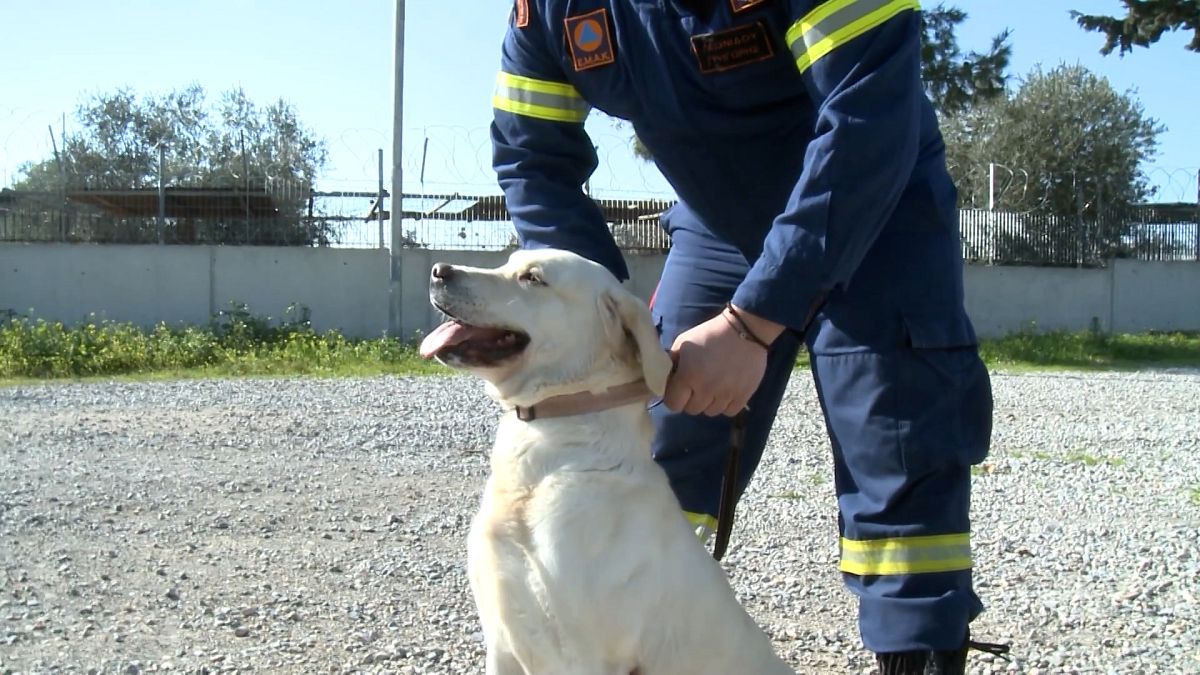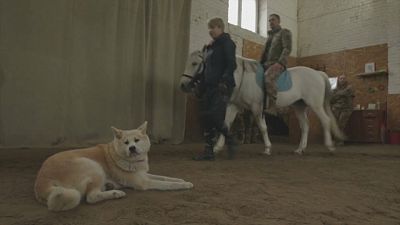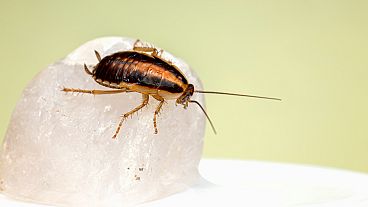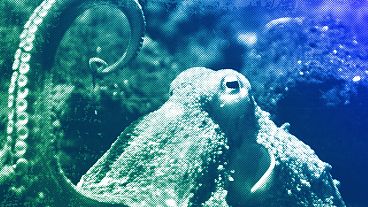These four-legged heroes have a sense of smell 100,000x better than humans
Dogs play a crucial role in disaster rescue, as we have seen in recent search and rescue missions following the earthquake in Turkey.
These four-legged heroes can climb, dig and run much faster than even the best human rescuer - and have a sense of smell that is 100,000 times as powerful.
But how do you train and hone the skills of these super-hounds?
Training a rescue dog
Training a rescue dog is no easy feat.
On a visit to the 1st Special Unit for Disasters (EMAK) in the Aspropyrgos suburb of Athens, Euronews met Argo, a beautiful golden labrador with vital life-saving skills.
The dog’s training begins from the moment the trainers take the puppy home and integrate it into their family.
Their daily routine includes training in simulated conditions combined with play and rewards. The training centres all of the most important things in the dog’s lives around their human companions. This consolidates a strong bond between dog and trainer.
"Their daily routine starts with morning training, followed by a rest, then afternoon training or some other obedience activity and more rest,” explains Gregory Leonidou, chief firefighter at the 1st EMAK.
“Bonding is hugely important because the relationship between the two goes through many stages. Especially when you are on a real rescue mission and not training, the dog needs to understand that although training is not relaxed, it is a day of training, and that there is a difference between how it needs to act when on a mission," Gregory adds.
How valuable are rescue dogs during a disaster?
In search missions for trapped people, the dogs account for 70 per cent of the search effort and the human rescuers do 30 per cent.
They are vital to the rescue mission. Some have described Argo, the golden labrador, at Athens's 1st EMAK as a guardian angel.
It’s not an easy job - but the dog’s survival instincts generally protect it, explains Gregory.
“From the moment the dog enters a dangerous environment, the building has been checked by competent authorities so that we can proceed. But you never know what can happen from an aftershock, from a hidden point which may not have been checked or that only dogs can access,” he says.
“There is always danger. Of course the dog has a sense of fear but as long as it is given the opportunity to avoid certain situations its survival instincts will protect it.”
Watch the video above to see Argo in action.



